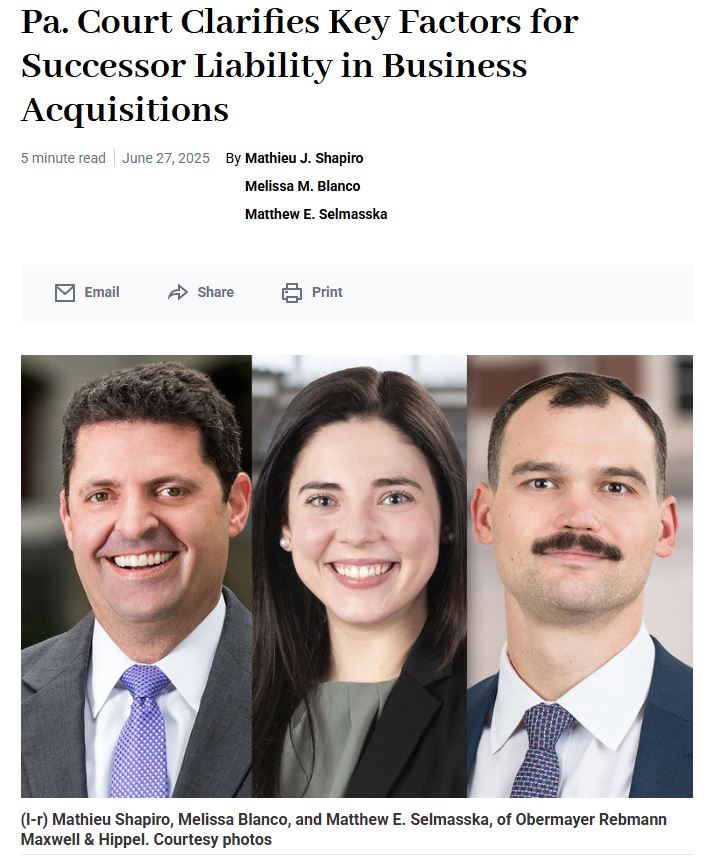The Legal Intelligencer: Pa. Court Clarifies Key Factors for Successor Liability in Business Acquisitions
In an article published in The Legal Intelligencer on June 27, 2025, Mathieu J. Shapiro, Melissa M. Blanco, and Matthew E. Selmasska discuss the recent case Campbell v. WeCare Organics, __ A.3d __, 2025 PA Super 44 (Pa. Super. Ct. 2025), and the key factors that determine successor liability in business acquisitions.
“Successor liability refers to a business being liable for the debts or obligations of a predecessor entity. Under Pennsylvania law, generally, a purchaser of a corporation’s assets does not automatically assume the debts of the selling corporation.”
The article explains the De Facto Merger Doctrine and the four-part test courts use to determine if a de facto merger has occurred. Obermayer’s litigation team also outlines important takeaways for in-house counsel following the Campbell decision, including
- Pennsylvania courts won’t impose successor liability lightly. The Campbell decision shows that unless ownership and operations truly carry over, successor liability may not apply.
- To avoid successor liability through a de facto merger, avoid ownership continuity. If the owners of the predecessor company do not receive ownership in the successor company—as in Campbell—a court is less likely to hold that a de facto merger has occurred.
- Similarly, if no business cessation of the predecessor company occurs, meaning the company continues operations, this will also work against a finding of a de factor merger.
Read the full article here.


